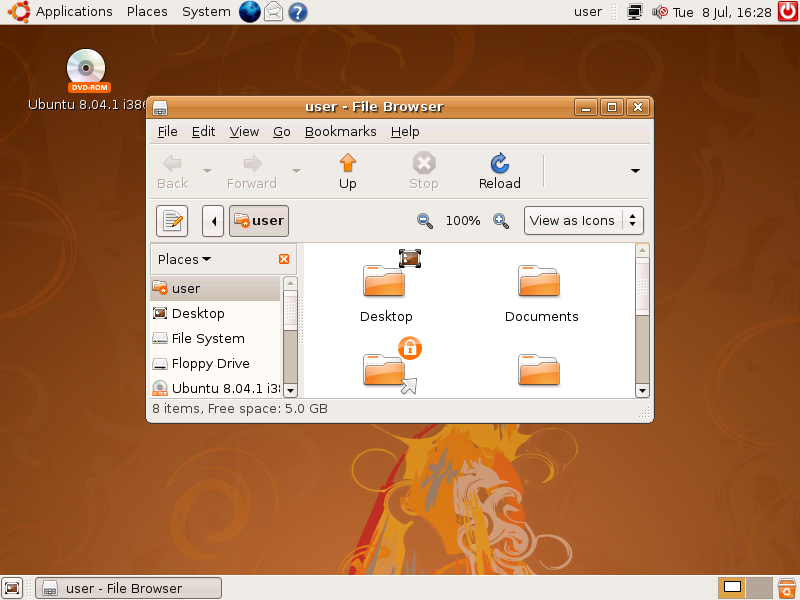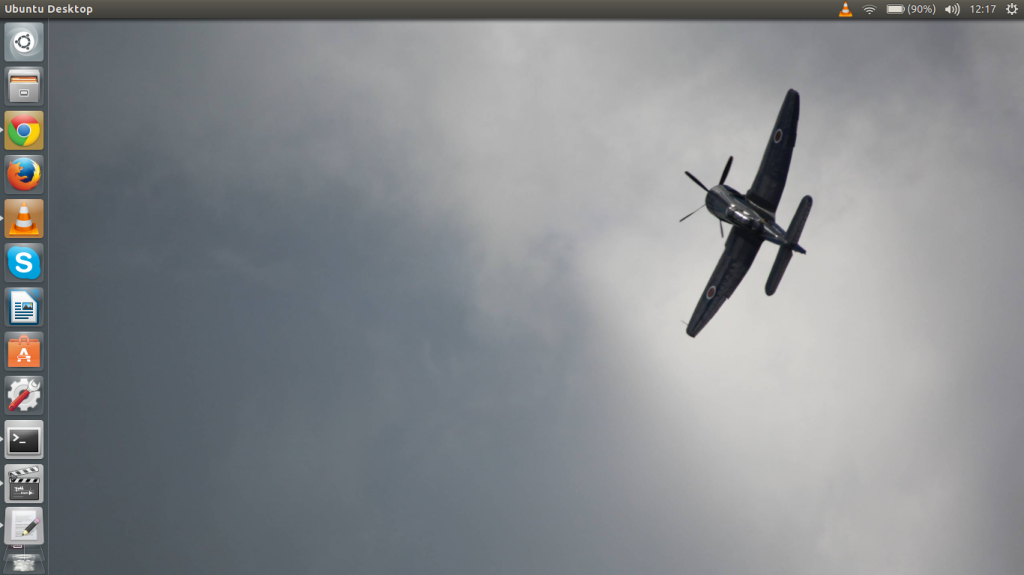Ubuntu is an open source free desktop operating system that’s based on the Linux kernel. The first version of Ubuntu — Ubuntu 4.10 (Warty Warthog) — was released on 20th October 2004, ten years ago. Ever since, Canonical the company behind Ubuntu, has released 20 versions of Ubuntu OS. The operating system provides a soft landing spot to the world of more than 100 Linux-based operating systems. Among these include Fedora, Opensuse, LinuxMint, PuppyLinux, CentOS, ArchLinux, Debian, Red Hat among several others. My first encounter with Ubuntu was with Ubuntu 8.04 LTS (Hardy Heron) back at university while working on a project that required a Linux operating system. Ever since, I’ve never looked back. I found the operating system fast,sleek, very responsive even on low-end PCs, very customizable, easy to use and most importantly secure. Compared to Windows, I must admit, nothing beats Windows ease of use. The legendary “start menu” on earlier versions of Windows starting with Windows XP is the hallmark of usability. Windows navigation was also dead-simple to learn. With a few taps, even a new computer user is fully capable of operating a sophisticated device like a PC. Windows excels at supporting various computer peripherals such as printers, keyboards, mousetracks, bluetooth adapters, Wi-Fi cards and just about any hardware can work seamlessly with the OS with the right drivers. However, I got sick and tired of being sick and tired of viruses, performance issues, software management and updates on Windows. Maintaining a Windows PC became extremely hard and expensive for me. I had to buy Anti-Virus licenses every year. After every 6 months, I had to just format my hard-drive and re-install windows afresh because my PC worked sluggishly. Then because Windows didn’t have a central repository of software, installing software from various sources I wasn’t even sure of on the Internet exposed my PC to several security threats. Also it was a hustle updating and managing all my software easily. That’s why I got converted to Linux-based distros like Ubuntu. I found that I didn’t need to spend money on an Anti-virus and even after 2 years, my PC performed as well as it did when I just installed the operating system. Ubuntu, unlike Windows also came with a number of basic software packages that I had to buy on Windows. The OS came with a full productivity suit (open office although now it comes with Libreoffice) completely for Free. It also came with a music player (Rhythmbox), a movie player (Totem), a functional web browser that wasn’t Internet Explorer (Firefox), software management tool (Synaptic) and a basic set of drivers such as Display, Ethernet and Wi-Fi drivers — all right out of the box. The moment you installed the OS, you were ready to start working almost instantly. However, Ubuntu is not without any shortcoming too. Since Ubuntu/Linux has a relatively less market share, availability of popular software for Ubuntu is a major concern. More advanced commercial software such as Adobe Photoshop, Dreamweaver, iTunes, Quickbooks among others are not available on Ubuntu and probably will never be. Since some people’s lives such as web developers, graphic designers literary depend on these applications, they choose Windows over Ubuntu. This also goes for some hardware such as scanners, printers and specialized hardware. Manufacturers favor Windows over Linux and will therefore only develop drivers for Windows and perhaps Mac rather than Ubuntu/Linux. Ubuntu is now evolving to conform to the changing computing landscape that’s now shifting towards smartphones, tablets and the cloud. Canonical has been concentrating its efforts on pushing an Ubuntu for phones, TVs and even smartwatches. The OS is estimated to have about 22 million users, it’s currently the number one cloud operating system. It’s supported on Lenovo, Dell, Acer laptops which are available with Ubuntu, and the OS has growing retail presence in China and India. Although it has it’s naming roots in Africa (South Africa), nothing much is known about its presence on the continent save for some scanty enthusiasts like myself. However, if you live in Uganda, you can join the Uganda Linux User group community, check out the Ubuntu Uganda page. Download the latest Ubuntu version, Ubuntu 14.04 LTS(Trusty Tahr) which I used to create this post here. Happy 10th birthday Ubuntu.



